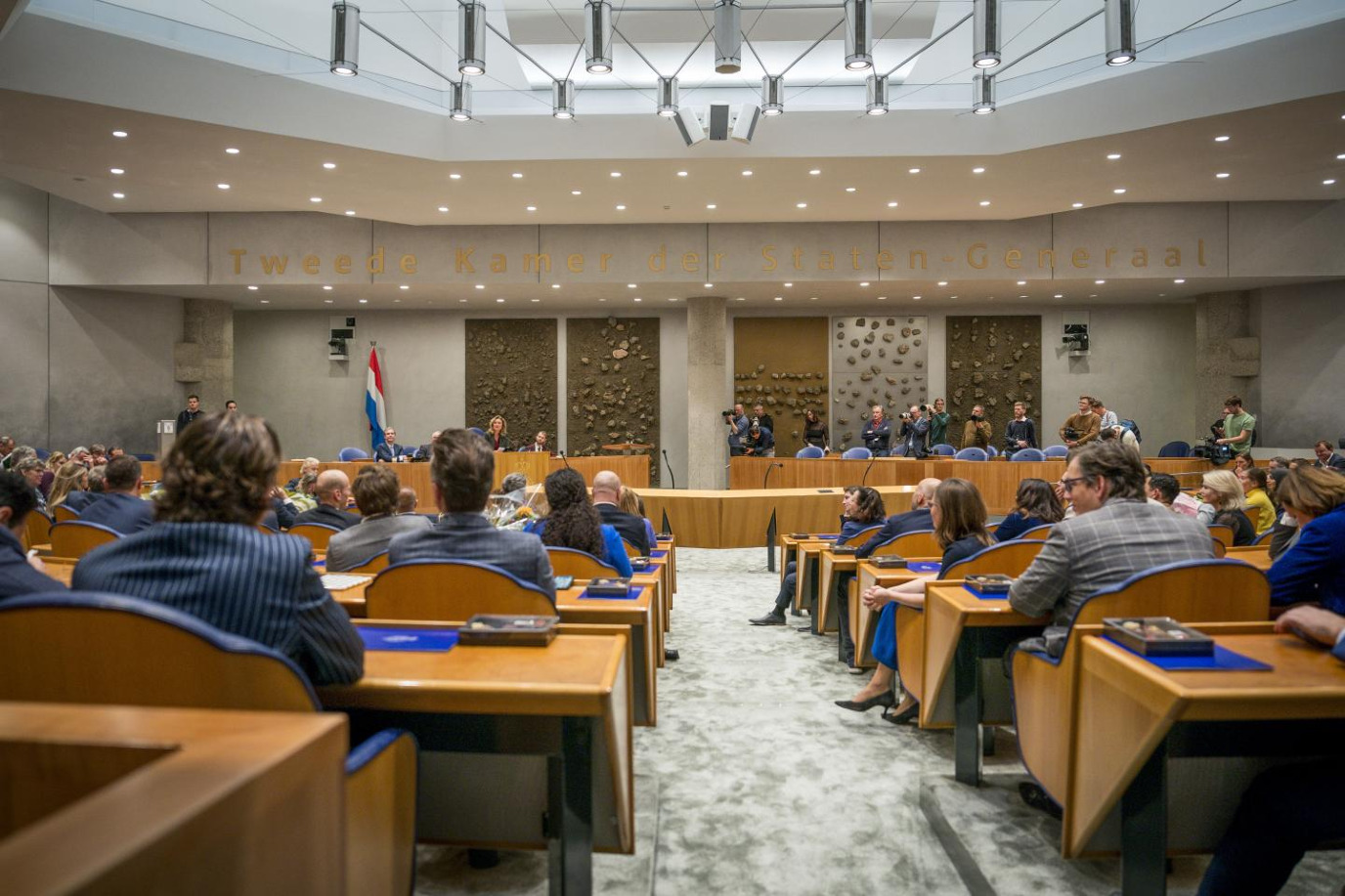Researchers: ‘Centrist coalition’ most likely outcome of Dutch government formation

The upcoming Dutch government formation appears to be heading toward a coalition focused on pragmatic cooperation in the political centre. This is the conclusion of a new model analysis by Karlijn Bakker (student University of Groningen), Jorrit van der Wal (student University of Oxford), Jacob Dijkstra (University of Groningen), and Jelmer Draaijer (Jelmert Engineering).
According to their calculations, a coalition of D66, VVD, GroenLinks–PvdA, and CDA is the most likely scenario. This so-called centrist coalition brings together parties that differ ideologically but are willing to make practical compromises in order to govern together. The combination unites reform-oriented and sustainable ambitions with room for liberal priorities in housing, security, and the economy.
The researchers base their analysis on the election manifestos of all parties. They identified eleven key issues on which parties differ substantially and determined for each both their position and the importance they attach to these topics. Using a decision-making model (Decide), they simulated how parties might trade positions during negotiation rounds to reach agreement.
The analysis shows that a coalition of D66, VVD, GroenLinks–PvdA, and CDA — together accounting for 86 seats in the House of Representatives and 37 in the Senate — has the highest likelihood of forming a stable government. In this scenario, D66 stands to gain on its core themes such as education, institutional renewal, and European cooperation, positioning itself as the reformist driving force within the cabinet. The VVD can distinguish itself on housing, defence, and migration, while GroenLinks–PvdA exerts influence on climate, healthcare, and nitrogen policy. The CDA remains true to its traditional focus on agriculture, defence, and healthcare.
An alternative scenario — involving D66, VVD, CDA, and JA21 — would represent a more centre-right course but is, according to the researchers, less stable due to major policy differences between D66 and JA21.
Once the final election results are announced, the researchers will publish an updated version of their analysis.
More news
-
17 February 2026
From Ghostbuster to Disaster Researcher
-
03 February 2026
‘Such willpower’
-
20 January 2026
Alcohol, texting, and e-bikes


